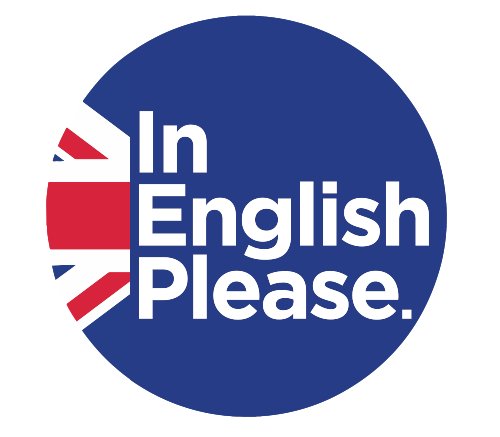
Written by Josh Barwick

Practicar tu listening en inglés B2/C1:
¡Hola y bienvenidos! Ya has visto el quinto vídeo de nuestro curso de practicar Conversación y Listening para niveles avanzados. Si no, desplaza hacia abajo. Nuestro ejercicio de listening es perfecto para prepararte para los exámenes de CAE o de Trinity ISE II+ .
Antes de seguir con este post, queríamos comentarte que hemos convertido todos nuestros vídeos de esta serie C1 a un curso gratuito. En este curso de C1, podrás:
- Hacer ejercicios para aprender y practicar más de 70 palabras nuevas
- Comprobar tu comprensión de los vídeos
- Aprender de forma estructurada y dinámica
¡Sigue este enlace para llegar directamente al curso!
Para un reto más tenemos nuestro curso de inglés online para B2: Learn English with Short Films // “Aprender inglés con cortometrajes” en Udemy. En nuestro curso vas a practicar tu listening en inglés y te vas a ir acostumbrando a los varios acentos a través de nuestras charlas y los cortometrajes.
Ya que este curso de listening es para niveles avanzados, tenemos casi todo en inglés.
Advanced listening practice:
Hi there! “Being polite” is the fifth edition of our, soon to come, Conversation and Listening course for advanced levels. Please, take your time.
You’re here because you’ve watched our video and you’d like some more information about some of the advanced vocabulary that we used. Good work! But if you haven’t seen the video yet, you can see it at the bottom of this article.
This is a fantastic listening exercise to practice for the CAE (Cambridge Advanced Exam) or Trinity ISE II+ exam.
You could also check out out B2 course: Learn English with Short Films on Udemy. You can watch short films and practice your listening with various accents.
British people are famous for queuing orderly at all times. This is a great example of our manners.
Vocabulario avanzado de “Being Polite”:
Polite – Not to be confused with “educated”, which means to have a good education related to studies. If you are polite, you are respectful and considerate of other people (educado)
It’s very important to be polite when you meet new people.
Manners – Polite social behaviour (modales)
Good manners are important when you go to a restaurant.
Host – the person who receives and entertains others in their house (anfitrión)
If you’d like another drink, ask the host.
Guests – The people who go to the host’s house (huéspedes)
When you’re a guest in someone else’s house in England, it’s normal to take your shoes off.
Fancy a cuppa? – A very British way to ask for a cup of tea. Click here to learn more.
Hey Casey, fancy a cuppa?
Social order – The set/system of social norms.
If we don’t maintain the social order, this country will collapse!

Even the Irish use polite, indirect questions. Even Drunk. Even Green.
Small talk – The (almost) meaningless conversations you have when you see someone in the street, or before you start talking about serious things.
No time for small talk. I’m in a rush.
Rest assured – To be certain that something expected is going to happen.
Rest assured, In English Please will always be here to help you with your English.
Rude – the opposite of polite (maleducado)
Don’t spit in the street! That’s rude.
Petty – Of little importance. Trivial. (pequeño/baladí)
I think your obsession with what John said is petty at best.
A level of decorum and decency – Behaviour in keeping with good taste and propriety (decoro)
P’s & Q’s – This refers to “pleases and thank yous”, Wikipedia has a great article on them.
Mind your P’s and Q’s when talking to grandma.

You have to speak to your grandmother politely, one rude remark and you’ll get a clip round the ear.
Ways to ask very polite questions:
Otherwise known as “indirect questions”. These are very common ways of expressing questions that help us to be more polite in English. We often don’t say “please” when we’re asking questions but instead we compensate with a more polite sentence structure.
Let’s look at some basic differences…
Direct question: What sports do you like?
Indirect question: Could you tell me what sports you like?
Direct question: Where is the library?
Indirect question: Do you know where the library is?
Direct question: Should we go to the beach?
Indirect question: Can you tell me if we should go to the beach?
Please note that if we ask an indirect question with a “yes” or “no” answer, we use “if”. As in the example above.
Let me show you one more example, here is a yes/no question.
Is she looking forward to the promotion? (It’s a “yes” or “no” answer)
Could you let me know if she is looking forward to the promotion?
(I’m taking it for granted that you have “looking forward to” already under your belt, if not, check out our article.)

They say if you ask the right way, you can get anything.
Common ways to begin indirect questions:
Here we thought we would give you some examples of key phrases we use that lead to direct questions.
Can you tell me…
Could you let me know….
Do you know…
I’d like to know…
Would it be possible…
Is there any chance…
I was wondering…
If you want to speak like a native, it is imperative that you learn to use indirect questions naturally and fluently. Without being able to use them, you will ALWAYS sound like a foreigner when talking, and there’s a good chance that you’ll come across as rude.
So as not to be rude, you could always learn polite British Swear words, like in this video on Conan. It’s a tough video but it’s great to put your English listening skills to the test.
For a more detailed explanation of indirect questions, head over to Perfect English Grammar where they break down how to create indirect questions in different tenses.
Alternatively, you can wait for our course to be officially released, where we’ll have explanations, exercises and other ways to practice so you can truly master indirect questions. Watch this space!
Conclusion:
Well done for coming here and taking the time to really improve your English. Simply by watching the video you have improved your English listening skills with the British accent and you’re one step closer to passing that exam, or understanding natives in real contexts. Good work!
Finally, make sure you subscribe, so as not to (click here if you don’t know “so as not to”) miss out on any future videos!
And before we forget, you can try our online course Learn English with Short Films // “Aprender inglés con cortometrajes” en Udemy.
Más videos para practicar el listening en inglés:
Hemos hecho ya muchos videos para practicar el listening en inglés, aquí te dejamos un listado de ellos:
By the way, no solo somos buenos profesores de inglés sino también somos buenos estudiantes de español. Si ves un fallo en nuestro articulo, abajo nos puedes dejar un comentario con la corrección y la revisamos.
Posts Relacionados
Practica las preposiciones en inglés: guía rápida con ejercicios
Preposiciones en inglés ¿cuáles son? Las preposiciones en inglés son palabras pequeñas pero poderosas que indican la relación entre diferentes elementos en una oración. Estas relaciones pueden referirse a lugar, tiempo, dirección, causa, medio o modo. Es cierto que al...
Aprende 3 modales en inglés B1: Should, Would y Could – ejercicios PDF
Aprende a usar los verbos modales en inglés B1 Hablar correctamente en inglés no solo se trata de aprender vocabulario y estructuras (pero si quieres aquí te dejo algunos artículos para refrescar este contenido como Ejercicios de sinónimos y antónimos en ingles –...
It is done: Ejemplos de pasiva en inglés B2 y C1 – Avanzado
Ejemplos de pasiva en inglés B2 En un nivel B2, pasar de activa a pasiva requiere un conocimiento de gramática más avanzado, así que hemos preparado ejemplos de pasiva en inglés B2, para que te hagas una idea. También te invitamos a que eches un vistazo a nuestro...
¡Manten el contacto!
Acceso a contenido premium
Coming soon
Síguenos
Ven a vernos en Facebook y en YouTube para aprender más






When you are recommending to use indirect questions, you say: “Don’t be really direct, always hedge your bets” What is the meaning of “hedge your bets” in this context?
Hedge your bets is a great expression.